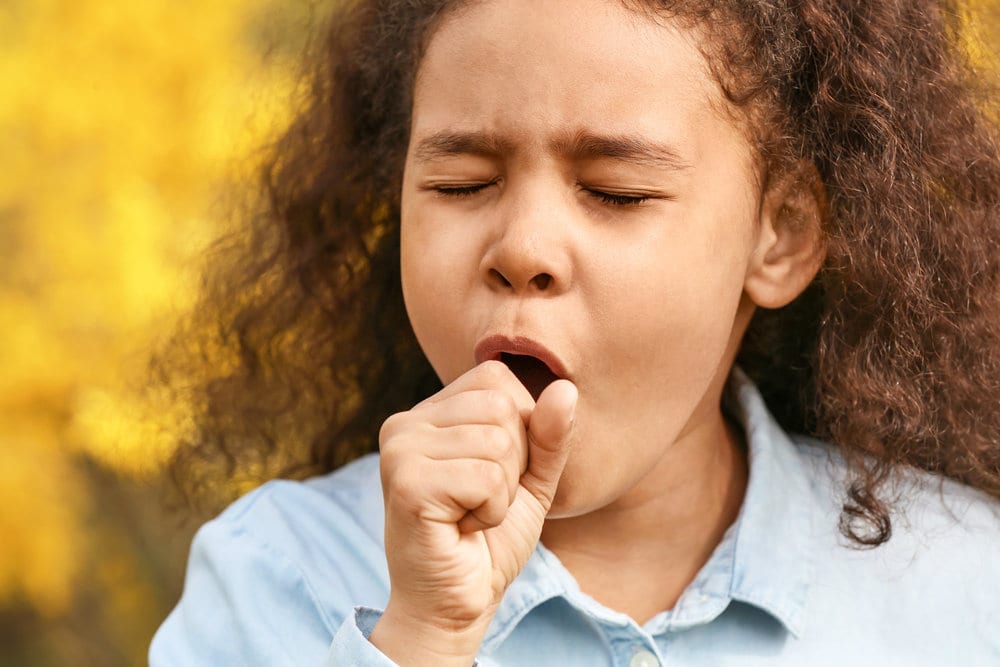All You Need To Know About Whooping Cough (Pertussis)

Food Poisoning: Signs, Causes, and Treatment
August 9, 2021
Chickenpox (Varicella): Causes, Symptoms And Treatment
September 1, 2021Whooping cough (also known as Pertussis) is a highly contagious respiratory infection caused by the bacterium Bordetella pertussis. Now that COVID-19 has sparked the general public’s interest in highly contagious respiratory diseases, this is about as good a time as any to talk about the disease.
Before the development of a vaccine, whooping cough was considered a childhood disease. Nowadays, it predominantly affects children that are too young to have gotten their full vaccinations yet. It also affects teenagers or adults who have lost their immunity to the disease. Whooping cough is characterized by uncontrollable harsh coughing, which makes it hard to breathe. After coughing, the infected make a high-pitched breathing sound similar to ‘whoop’. Hence, the name.
READ ALSO: 7 Best Foods To Help Boost Immunity
People of all ages can be prone to pertussis. However, it is very deadly for babies less than a year old. Although rare, death commonly occurs in infants. Pregnant women, and others who will have close contact with infants, must therefore be vaccinated against whooping cough.
Symptoms of Whooping Cough.
The symptoms of whooping cough may not show up until about 5 to 10 days after the initial infection. When the symptoms show up, it starts off with the same symptoms as the common cold, which include;
- Low fever (below 102ºF).
- Runny nose.
- Mild cough.
- Sneezing.
- There is also the possibility of experiencing diarrhea early on.
About 6 to 10 days after the symptoms have started, the cough gets very violent. One makes a whooping sound as he/she tries to breathe. This violent coughing can also lead to;
- Dehydration. The cough may make it difficult to swallow the liquid, causing dehydration.
- Vomiting. This is a result of the harsh cough that can last up to a minute.
- Blue or purple skin around the mouth as a result of coughing very hard.
- Fever.
- Difficulty in breathing.
Complications of whooping cough
Pertussis can cause some serious complications, especially in babies, due to the lack of oxygen. These complications include;
- Slowed or stopped breathing.
- Seizures.
- Brain damage.
- Convulsion.
- Bleeding in the brain.
- Pneumonia.
- Death.
In older children, complications may include;
- Loss of bladder control.
- Rib fracture.
- Difficulty in breathing.
- Pneumonia.
Causes of Pertussis and How it is Spread.
The infection is spread through coming in contact with the saliva (through sneezes, laughs, coughs) of an infected person. The bacteria may fly through the air and get you sick when you breathe in the droplets.
Once in the respiratory tract, the bacteria attach their little hairs to the lining of the lungs after getting into your airways. This then leads to inflammation and swelling, which can further lead to a long-lasting cough that is dry and other symptoms similar to the average cold.
The earlier the medical intervention, the quicker the children and adults can recover. It is crucial to see a doctor for diagnosis once the first set of symptoms starts to occur.
Diagnosis of Whooping Cough.
Because the early symptoms of whooping cough are similar to those of flu, bronchitis, or cold, it may be difficult for you to do a self-diagnosis. To be on the safe side, see your doctor once the symptoms start.
Your doctor can diagnosis whooping cough through;
1. Chest X-ray to tell if you have a fluid or inflammation in your lungs.
2. The sound of your cough can also give a hint to your doctor if you have an infection.
3. A nose or throat culture.
Prevention of Whooping Cough.
The best way to prevent whooping cough is through vaccination. There are different vaccines for children of different ages, such as; 1. The DTaP or DPT vaccine can protect infants for the first six months of their life. It can also be taken between 14 to 18 months and ages 4 to 6 years old.
2. Older children can take the Tdap vaccine and booster at age 10.
3. Another way to prevent the disease is by staying away from those who have it. Infected people should also wear face masks and wash their hands regularly.

